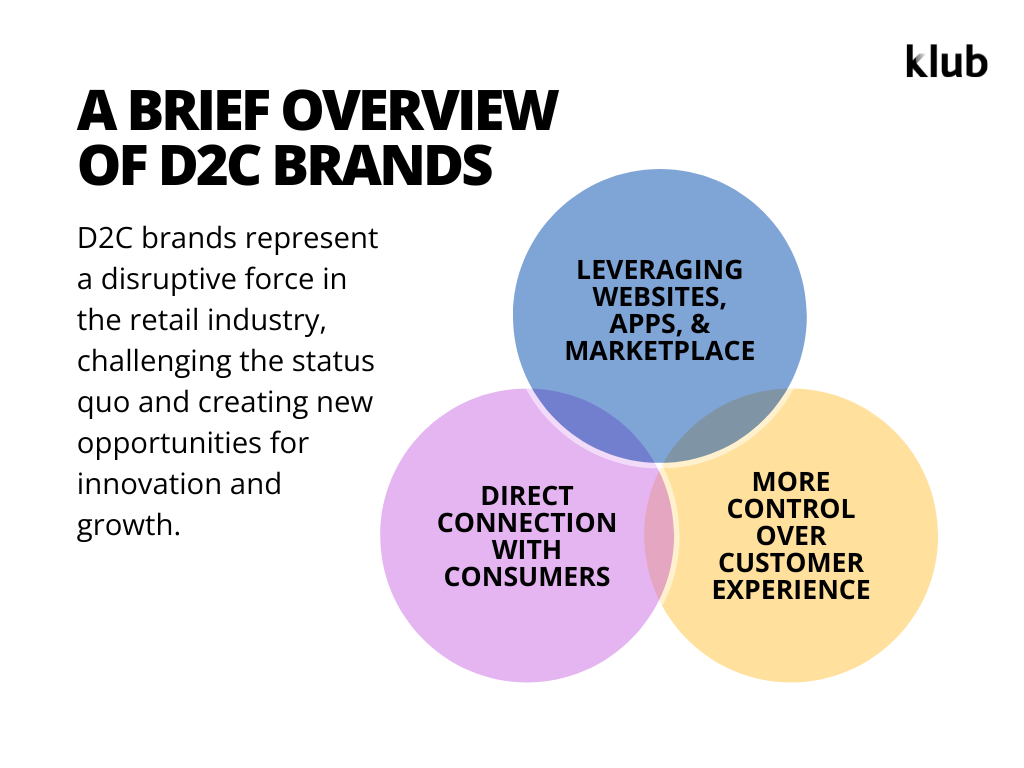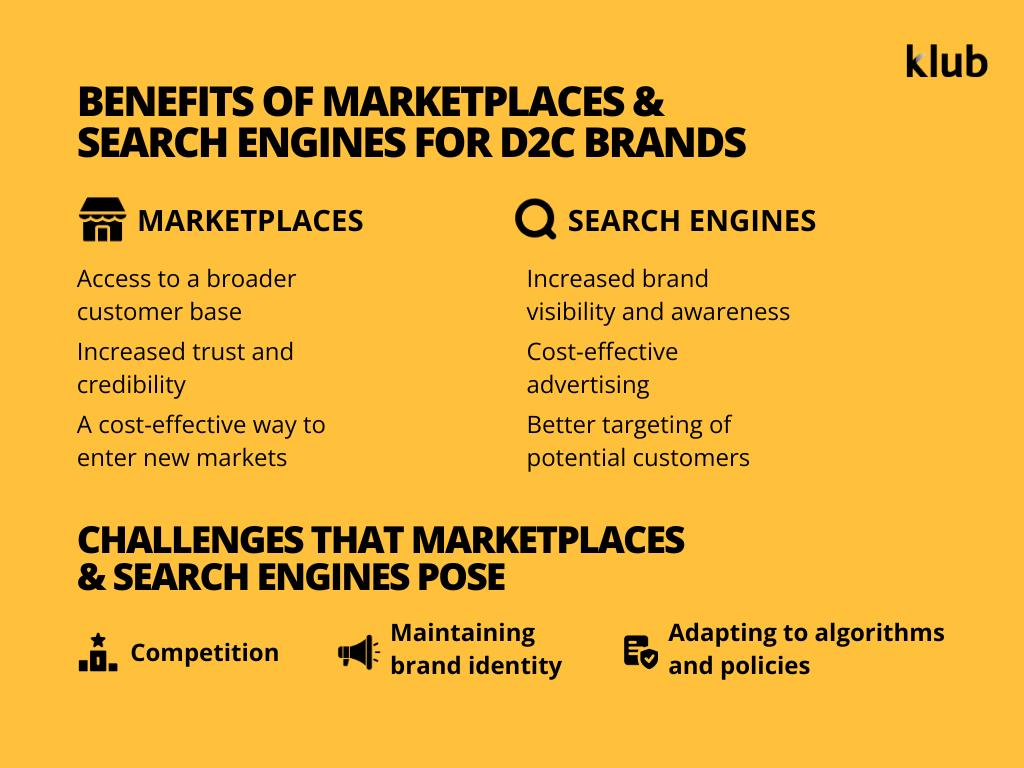
The Power of Search Engines and Marketplaces for D2C Brands
Mon Sep 25 2023
4 min read
Ever wondered how the most incredible new products pop up on your screen just when you're looking for them? The secret sauce? Power-packed search engines and marketplaces fine-tuned for the direct-to-consumer (D2C) universe.
Dive in as we unravel the magic behind these digital juggernauts and reveal how they can supercharge your brand's online presence and sales!
An overview of D2C brands

Why are search engines and marketplaces integral to D2C enterprises?
For D2C ventures, search engines, especially heavyweights like Google and Bing in India, enable companies to be prominently visible in search results for relevant queries. This heightened visibility simplifies the customer's journey to discover the brand.

Marketplaces like Flipkart, Amazon, Meesho, etc., provide an extended audience reach while capitalising on consumers' inherent trust in these renowned platforms. Given the dominance of these e-commerce giants in India, it becomes imperative for any business, irrespective of its size or niche, to factor in these behemoths when mapping out its expansion strategy.

A pronounced online presence on search engines and marketplaces is non-negotiable for any D2C brand aiming for success in this digital epoch.
Understanding the Benefits: Search Engines for D2C Brands

A study by Similarweb revealed that search engines steer traffic to e-commerce sites in India at a rate 10 times higher than social media. In 2023, a significant 55% of all e-commerce website traffic in India was search engine-derived, with marketplaces contributing 25%.
D2C brands can harness search engines to:
- Boost visibility: Through search engine optimisation (SEO) strategies, brands can ascend in search engine results pages (SERPs).
- Cost-effective advertising: With pay-per-click advertising, brands incur costs only upon a customer's click.
- Effective customer targeting: Analysing search engine metrics offers insights into customer behaviour, preferences, and challenges.
This intel is pivotal for refining marketing strategies.
Raghav Jhawar, Co-founder of The Slate Plate, emphasises, “Given the escalating costs in paid advertising avenues like Instagram, it's judicious to shift focus towards organic growth channels, such as SEO and content marketing.”
Marketplaces: What's in it for D2C Brands?

Marketplaces act as launchpads for D2C brands to widen their reach.
The key benefits include the following:
- Expanded customer reach: D2C brands can tap into a more extensive audience base than they might achieve via standalone websites or brick-and-mortar outlets.
- Elevated trust: Established marketplaces inherently possess high consumer trust, propelling sales.
- Economical market entry: Marketplaces present cost-effective routes to venture into new markets, leveraging existing logistics and shipping frameworks.
Yushika Jolly, CEO of Paradyes, shares, “Our products are featured on premier retail platforms, like Amazon and Walmart, making it straightforward for the Gen Z demographic to identify and procure our offerings.”
Potential hurdles with search engines and marketplaces
Brands should be cognisant of challenges such as:
- Intense competition: With a multitude of brands vying for attention, maintaining a unique brand identity becomes arduous.
- Algorithmic changes: The dynamic algorithms of search engines and marketplaces necessitate constant adaptation.
Strategies for D2C brands: Capitalising on Marketplaces
- Know your platform: Each marketplace has its own set of rules and search algorithms. A deep understanding of these is crucial to maximise product visibility.
- Effective keyword use: Comprehensive keyword research to identify potential customers' terms is essential. Integrating these keywords into product listings can significantly uplift visibility.
- Optimised product listings: Concise product descriptions and high-quality visuals can enhance the purchase decision process.
- Strategic advertising: While marketplaces offer tailored advertising solutions, brands should be prepared for the associated costs.
Harnessing Search Engines for Brand Building
Being visible at the opportune moment is crucial. Brands should be equipped to appear prominently when their target audience conducts searches on platforms like Google, which commands a staggering 92.26% of global search queries.
The tactics include:
- SEO: Selecting the apt keyword ensures the audience encounters relevant content on SERPs

- Content Marketing: A robust content strategy can attract and retain potential customers. Brands should focus on addressing customer pain points.
- SEM: As per Search Engine Land, SEM aims to amplify website visibility on SERPs via paid advertising. Platforms like Google Ads offer precise targeting, ensuring that brands only pay when users interact with their advertisements. McKinsey & Company's research indicates that e-commerce brands that invest in SEM can witness a surge in their conversion rates by up to 20%.
Best Practices for D2C Brands
- Stay abreast of emerging trends and algorithm modifications.
- Regularly fine-tune strategies based on performance analytics.
- Consistently optimise listings for superior visibility.
Conclusion
While search engines and marketplaces undeniably offer immense potential for D2C brands, leveraging them necessitates a strategic approach and agility to adapt to evolving trends. When wielded judiciously, these platforms can profoundly amplify brand success.








